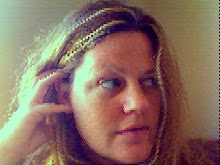Essay #1
Assignment: A brief (approximately 2-page) written response to the following: Describe an intellectual interest that you have developed. How has this interest led you to seek a Master of Liberal Arts degree? In what ways will this interest be served by interdisciplinary graduate work in the liberal arts? Please note that if your undergraduate major was not in the humanities or a closely related field, you should include in this essay a description of the academic or nonacademic experiences that have prepared you to embark on graduate-level work in the humanities.
Response: As an active participant in several online communities, I have cultivated a passionate curiosity about the social, political and historical implications of the past decade’s proliferation of personal electronic communication devices and publishing technologies. The effect on contemporary idiom alone, evident from such recently-coined words and phrases as “blogging,” “IM me,” “Google it,” “rip that CD” and “’toothed to my cell phone,” is at once extraordinary and overwhelming. Taken a step further, this trend toward cheaper, faster and wider-reaching information sharing may ultimately enable a greater percentage of the world’s population to experience, document and shape a future according to their own desires. Meanwhile, those of us already equipped with these miraculous tools are reveling in the variety of human expression now available for creation and consumption. While, indeed, the catalog of contemporary experience currently on offer ranges from quotidian “Dear Diary” entries to increasingly successful achievements in social transformation; sacred or profane, I find the common humanity of it all deeply moving.
My drive to observe, analyze and communicate trends in the world around me traces back to my undergraduate work in Dramatic Art. The broad range of humanities courses I took equipped me with a flexible, interdisciplinary toolkit which has, happily, retained its relevancy over the past 12 years. The area of study I chose — after two and a half years spent meandering the halls of UCSB’s Political Science, Black Studies and Linguistics departments — satisfied my craving for educational and experiential variety. Treated to a curriculum encompassing playwriting, stage/lighting/costume design, directing, acting, literary criticism and world history, I delighted at the daily opportunity to look at life through a multi-faceted lens.
The prospect of deepening my understanding of the plurality and universality of human expression through rigorous analysis and intellectual discussion with a diverse group of individuals truly excites me. When I discovered Stanford’s Master of Liberal Arts program and looked further into its structure and approach, I felt certain that it was an experience well worth pursuing. My hope is that participation in such a broad-based, challenging course of study will provide me with the “real-life forum” I’ve been searching for: an opportunity to contribute ideas and research to help make more sense of the ways in which humankind creates, destroys and rebuilds one civilization after another. Although 12 years in the corporate world, and a career dotted with numerous small victories and minor setbacks, have somewhat tempered the utopian idealism of my early 20s, I still dream of a future in which the confusion and strife of Babel is replaced by the lingua franca of boundary-free human expression.
Were this to happen in my time, I would not expect life suddenly to become any easier. The increasingly tedious chore of managing information overload is one of the many side-effects of its freer flow, and it will only increase over the near-term. To this end, I am proud of the professional accomplishments I have achieved in information architecture and user experience design. With these skills in hand, I relish the opportunity to sharpen my intellectual faculties as a graduate student at Stanford, and ultimately synthesize what I have learned to help others find meaning in the things we humans make, say and do in the attempt to understand why we are here. This is, I believe, the highest aspiration of the liberal arts scholar and a challenge I would enthusiastically accept.



0 Comments:
Post a Comment
<< Home